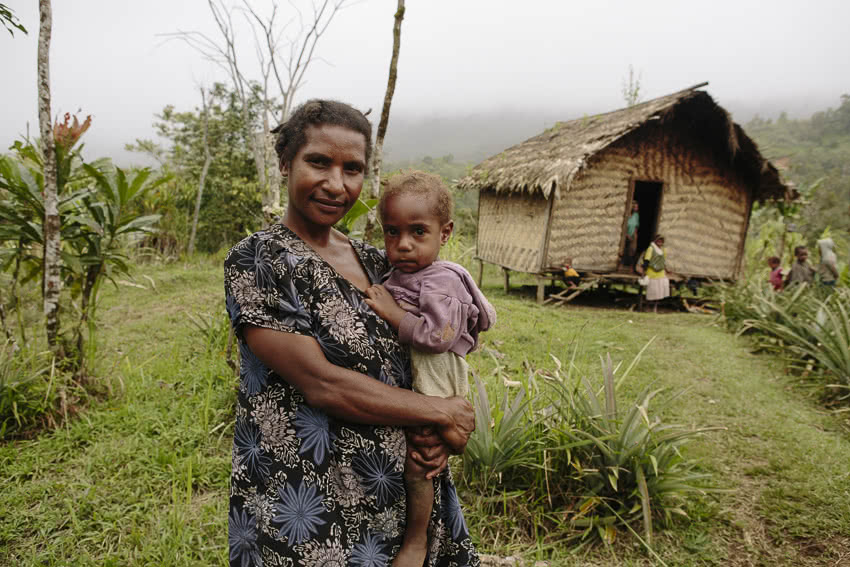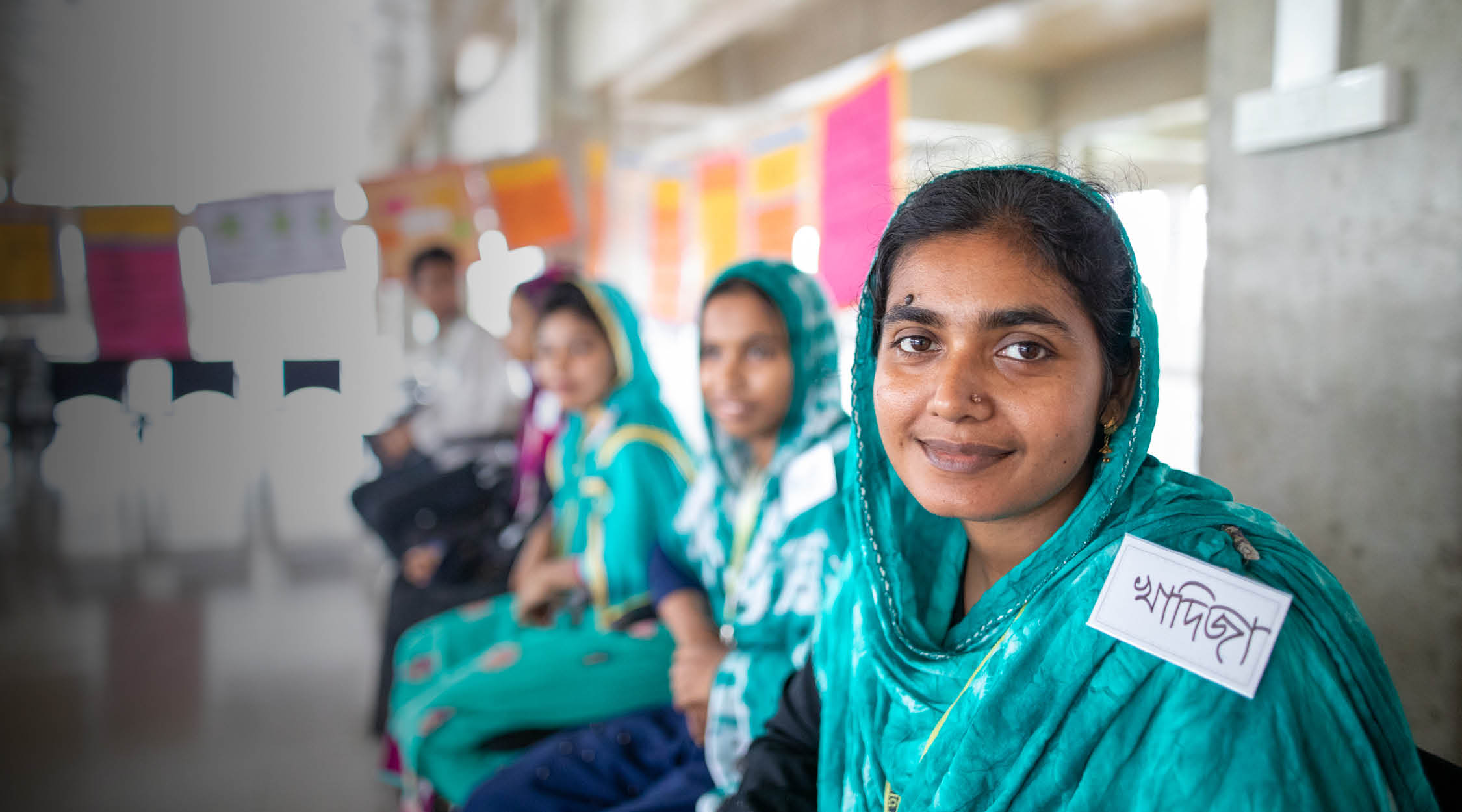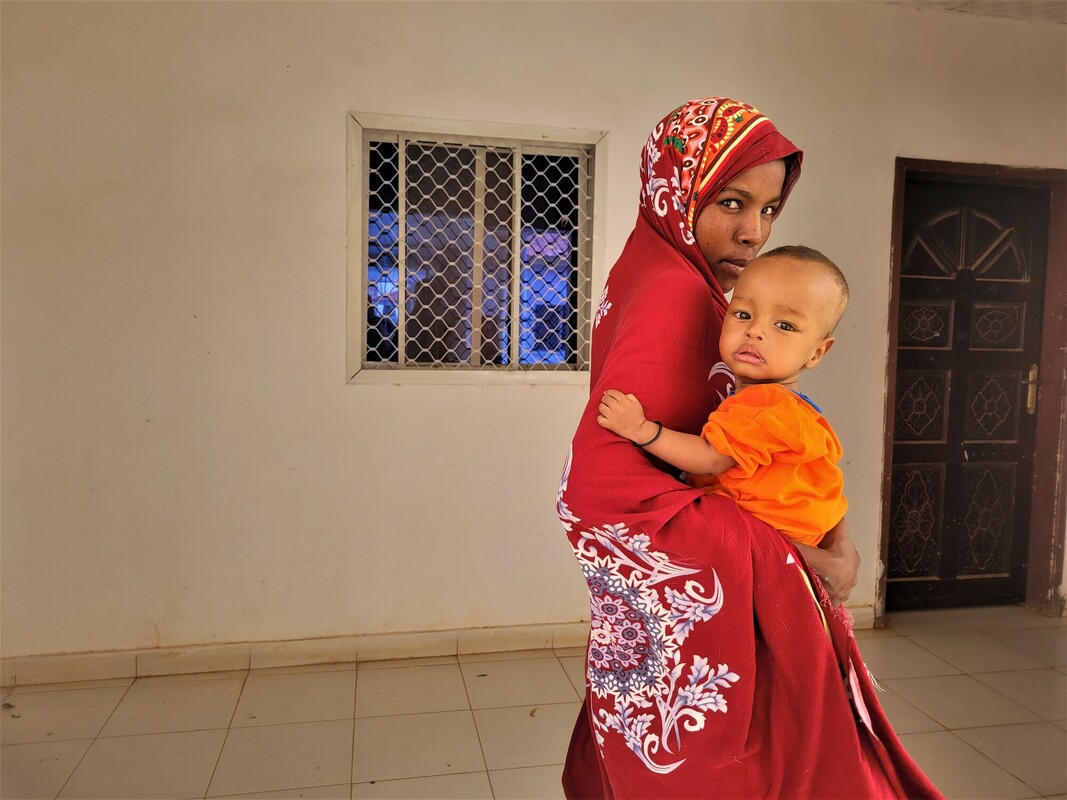Papua New Guinea (PNG), loses more mothers during pregnancy and childbirth than most countries in the Asia-Pacific region. CARE Australia’s Laura Dunens, discovers that this is preventable through improved maternal healthcare.
Dorina, a mother-of-three from a remote village in PNG’s Eastern Highland Province, has always known the dangers that can come with childbirth.
‘My mother, when she was trying to give birth to me, she nearly died,’ Dorina says.
After experiencing complications during birth in a rural village, Dorina’s mother desperately needed medical help. There was only one way to access it. She was carried on a stretcher, along a steep and slippery mountain path to the closest health facility. The journey took more than five hours.
The staff at the medical centre in Simbari didn’t have the medical knowledge or the equipment to help her, so they radioed for help. A plane arrived the next day to fly Dorina’s mother to Goroka, the closest town, for treatment at a hospital.
Remarkably, both she and baby Dorina survived.
PNG has one of the worst maternal mortality rates in the world, with extremely limited access to healthcare. Women face a one in 25-lifetime risk of dying from pregnancy-related causes. There is just one doctor per 17,068 people and almost 90 per cent of those doctors are based in urban areas, despite nearly 90 per cent of the population living rurally. By comparison, Australia has one doctor for every 302 people.
Unfortunately, when Dorina went into labour with her first child, she was in the same rural village her mother had given birth to her in. So, despite her mother’s commitment to telling her how important it was to seek medical help during pregnancy and childbirth, Dorina’s first birth experience was as isolated. She was helped only by other women in the village. Luckily, she didn’t experience any complications, but she has seen many other women experience the extreme risks of poor maternal health.
‘I’ve seen a lot of women die during delivery,’ Dorina reflects.
As well as geographic isolation, cultural taboos also play a part in preventing women from accessing vital healthcare in PNG. Here, it’s considered inappropriate for a man to touch a woman while she’s giving birth. Because all of the staff at health facilities in Dorina’s area are men, many women are wary of seeking help from them.
Because of her mother’s staunch commitment to better maternal health for her daughter, Dorina has also experienced giving birth in a health facility despite the help of a male attendant: ‘I was ashamed but I felt that it was more important to get assistance from the health worker.’
‘My mother tells me that “I have gone through this to have you, so you must always have a nurse to help you. That’s why the health centre is here, so that you can be helped,”‘ says Dorina. She says that she felt much safer when she gave birth to her other two children with medical support.
CARE is training female maternal health volunteers (MHVs) to make healthcare more accessible to women. MHVs are trained to accompany pregnant women to health facilities and assist the health worker during births. They also give family planning and hygiene advice.
A CARE-trained MHV, Lima, was also present when Dorina gave birth at the local health facility. Lima, who has helped deliver more than 100 babies, believes MHVs play a vital role.
‘Prior to [MHVs] … a lot of women gave birth in the villages because they were ashamed or shy of giving birth in front of the male staff,’ Lima says.
‘Since I’ve been assisting here at the health facility as a [MHV], a lot of women feel safe and they come to the health facility to deliver here.’
‘I felt better with Lima there,’ agrees Dorina.
Despite many challenges remaining for healthcare in PNG, it’s powerful advocates like Dorina and Lima who are actively helping to improve maternal health in their community.
By making a donation today, you could help newborn babies survive in remote countries like PNG.


